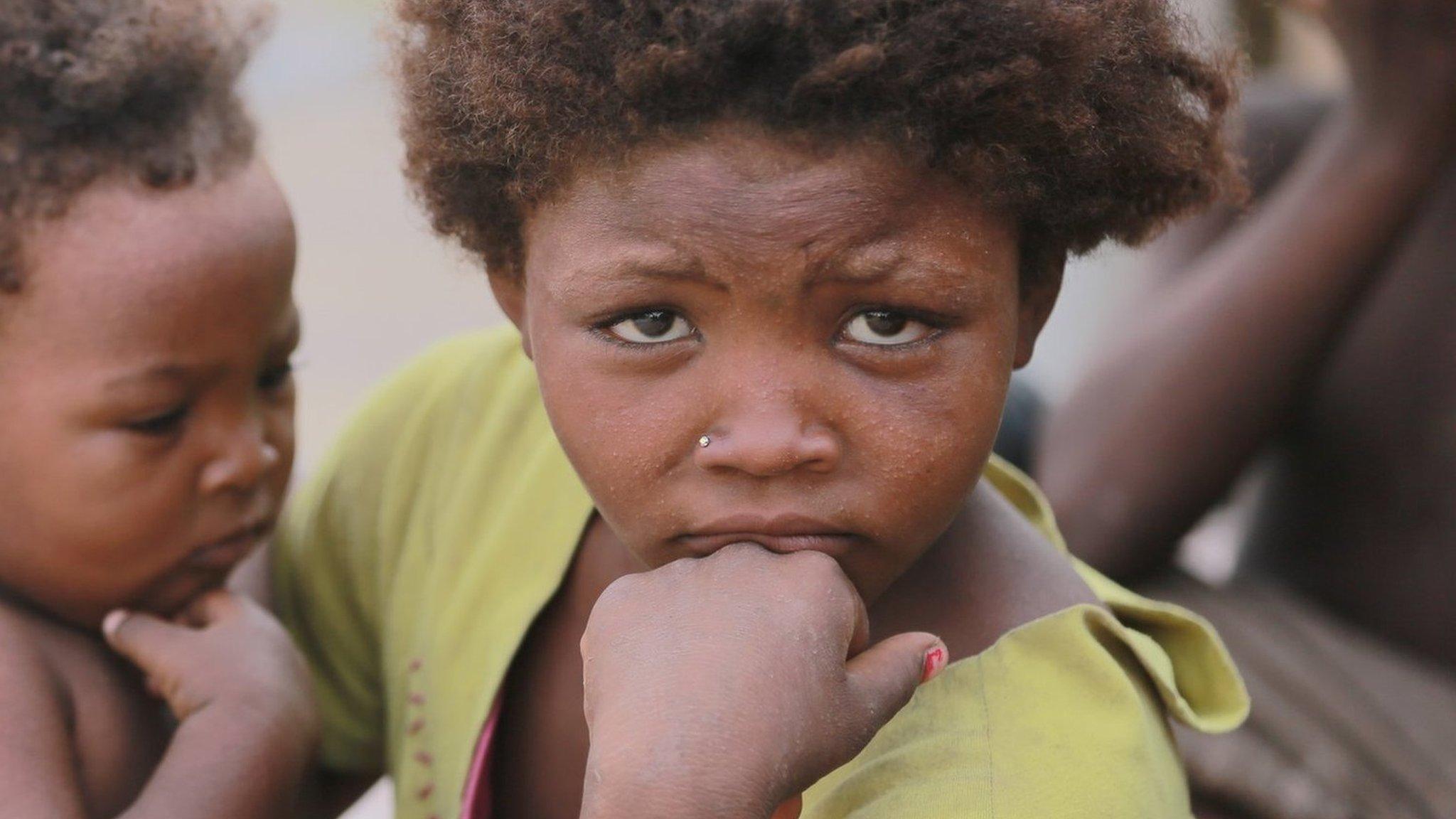Yemen war: First aid flights arrive since blockade
- Published
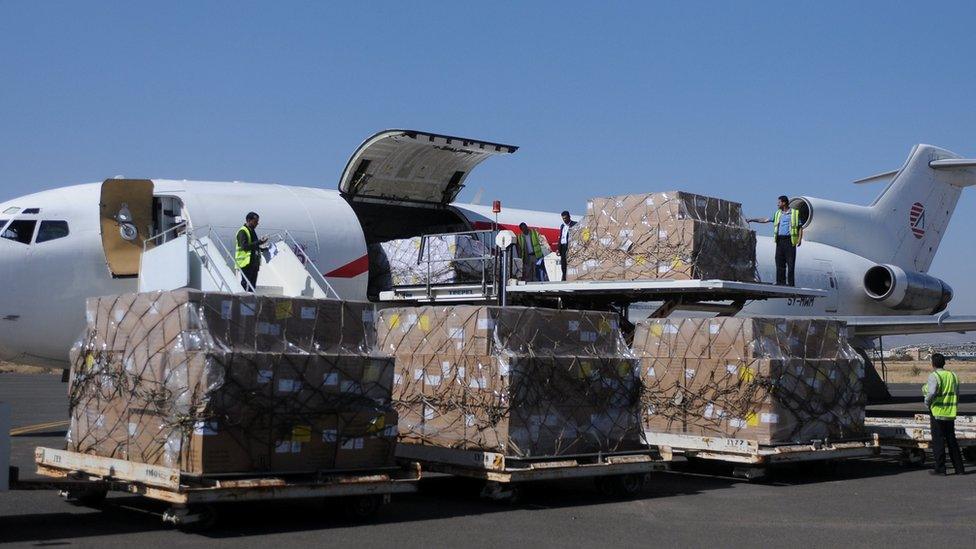
Aid has arrived in Yemen for the first time in three weeks
The first aid flights since the Saudi-led coalition imposed a blockade on rebel-held areas three weeks ago have landed in Yemen's capital, Sanaa.
They include a UN flight carrying 1.9m doses of vaccines, Meritxell Relano, Unicef representative in Yemen tweeted.
Three more aircraft carrying UN aid workers and International Red Cross staff have also arrived, AFP reports.
The coalition imposed the blockade on 6 November, two days after rebels fired a missile at the Saudi capital, Riyadh.
The missile, fired by the rebel Houthi movement, was intercepted over Riyadh's international airport.
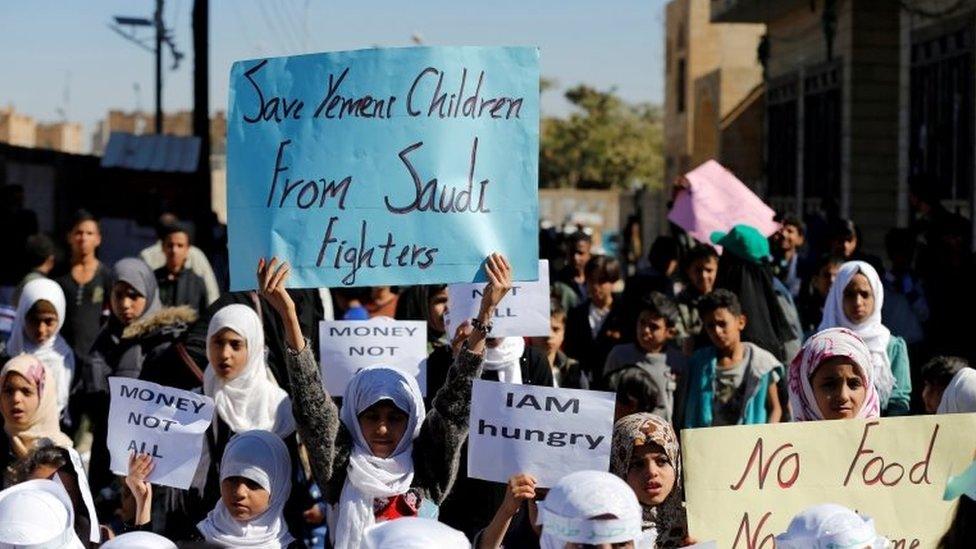
Some 400,000 children are at risk of dying through severe malnutrition, the UN says
The arrival of aid flights comes three days after the coalition announced it would reopen the Red Sea port of Hudaydah for urgent humanitarian aid and Sanaa's airport to UN aid and relief flights.
Officials say no aid ships have docked at Hudaydah yet. The planned reopening followed a review by the coalition to ensure weapons do not reach the rebels.
The BBC's Clive Myrie reports from one hospital on the brink of running out of fuel
It had been hoped the first aid shipments would arrive on Thursday but they appear to have been delayed as aid agencies negotiated time slots with coalition forces. Aid workers have warned that flights alone will not be enough to alleviate the suffering.
UN agencies had warned of dire consequences for "thousands of innocent victims" unless the delivery of life-saving supplies to all rebel-held ports was permitted.
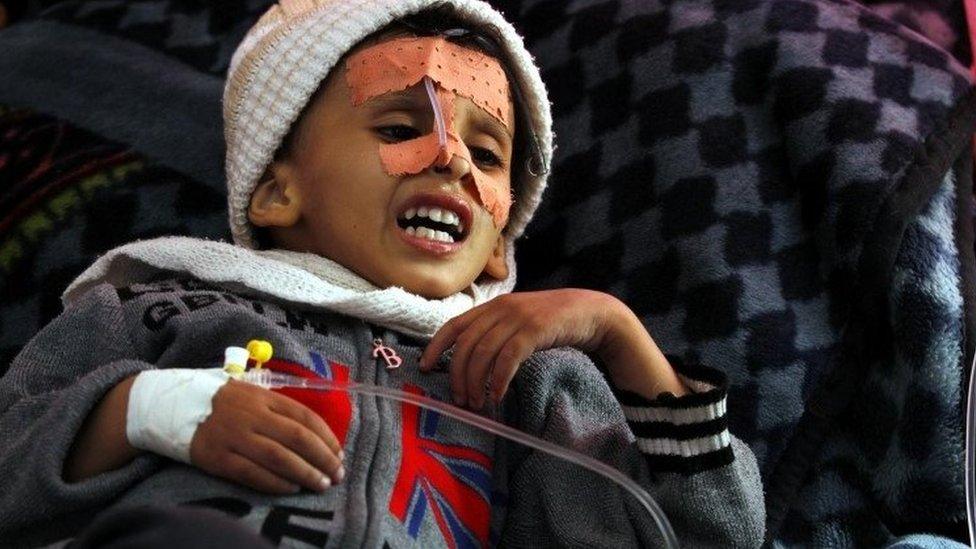
Some Yemeni children are in need of medical attention as a result of the blockade.
More than 20 million people are in need of urgent humanitarian assistance. Eleven million of those are children - 400,000 are affected by severe acute malnutrition.

The Saudi-led coalition intervened in the war between forces loyal to President Abdrabbuh Mansour Hadi and the Houthis in 2015. Since then ground fighting and air strikes have killed more than 8,670 people, according to UN figures.
Saudi Arabia says the Houthi rebels are backed by Iran, its regional rival, something Iran denies.
- Published9 November 2017
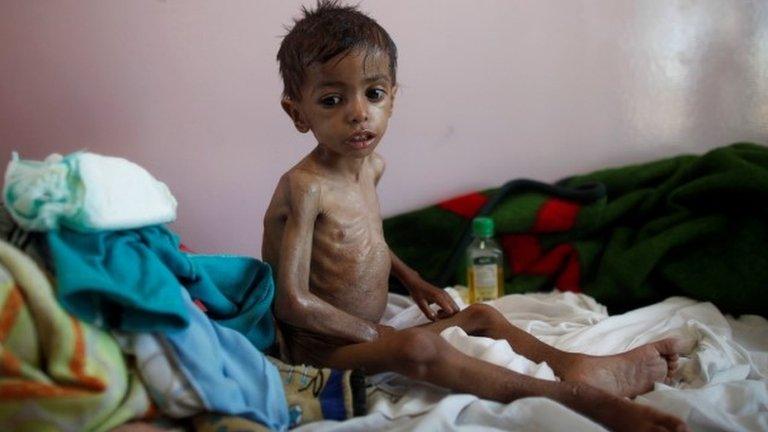
- Published7 November 2017
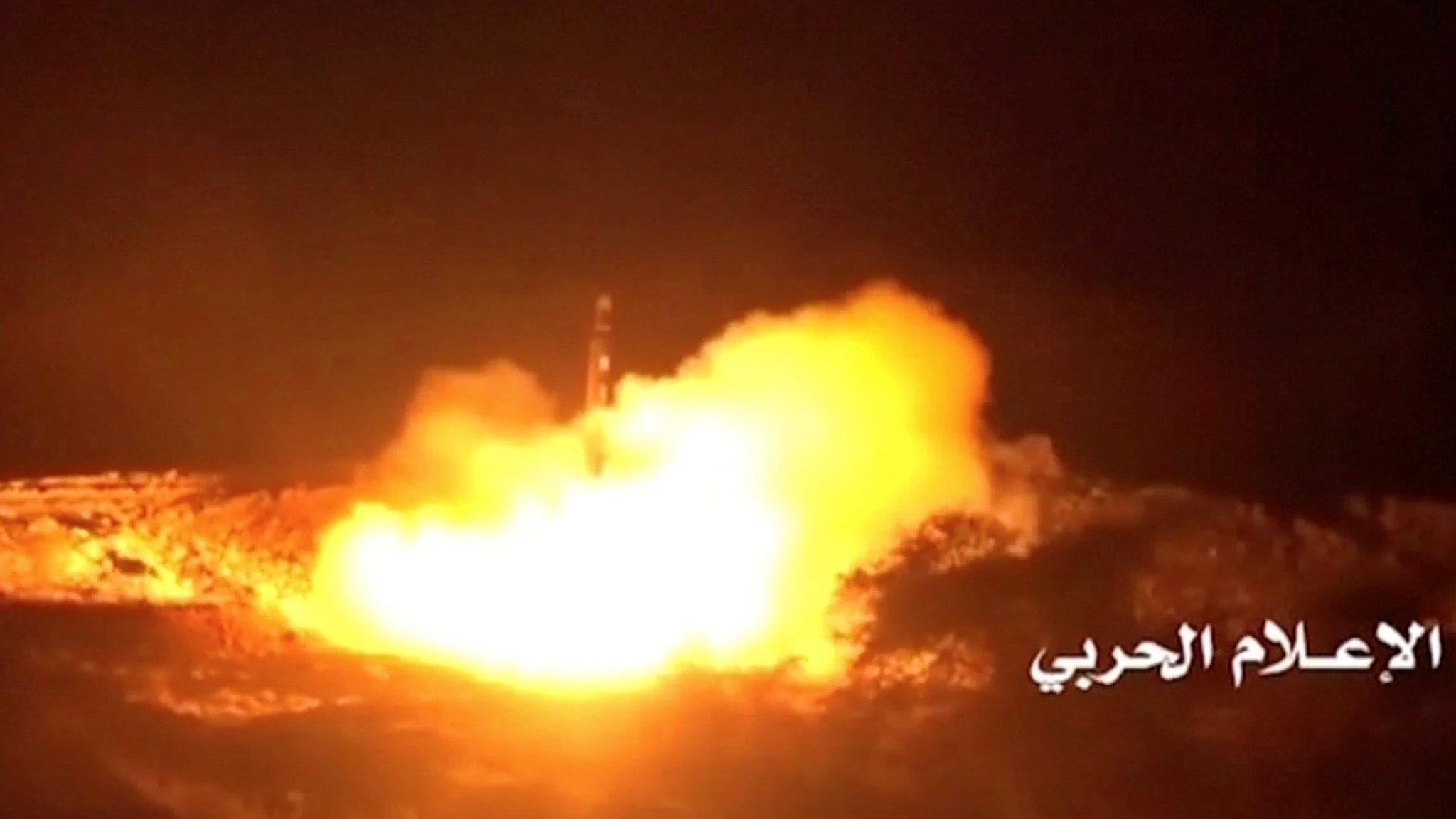
- Published6 November 2017
- Published23 August 2017
